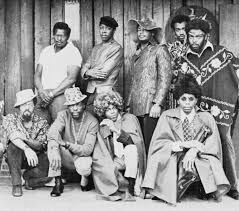Stamp: 1000th anniv. Parlament (Iceland 1930)
1000th anniv. Parlament (Iceland 1930)
01 June (Iceland ) within release 1000th anniv. Parlament goes into circulation Stamp 1000th anniv. Parlament face value 35 Icelandic eyrir
| Stamp 1000th anniv. Parlament in catalogues | |
|---|---|
| Michel: | Mi:IS 144 |
Stamp is square format.
Also in the issue 1000th anniv. Parlament:
- Stamp - 1000th anniv. Parlament: Snæfellsjökull face value 15;
- Stamp - 1000th anniv. Parlament face value 20;
- Stamp - 1000th anniv. Parlament face value 35;
- Stamp - 1000th anniv. Parlament: Gullfoss face value 50;
- Stamp - 1000th anniv. Parlament face value 1;
|
Data entry completed
50%
|
|
|---|---|
| Stamp 1000th anniv. Parlament in digits | |
| Country: | Iceland |
| Date: | 1930-06-01 |
| Perforation: | 14 |
| Format: | Stamp |
| Face Value: | 35 Icelandic eyrir |
| Print run: | 25500 |
Stamp 1000th anniv. Parlament it reflects the thematic directions:
The horse (Equus ferus caballus) is one of two extant subspecies of Equus ferus. It is an odd-toed ungulate mammal belonging to the taxonomic family Equidae. The horse has evolved over the past 45 to 55 million years from a small multi-toed creature, Eohippus, into the large, single-toed animal of today. Humans began to domesticate horses around 4000 BC, and their domestication is believed to have been widespread by 3000 BC. Horses in the subspecies caballus are domesticated, although some domesticated populations live in the wild as feral horses. These feral populations are not true wild horses, as this term is used to describe horses that have never been domesticated, such as the endangered Przewalski's horse, a separate subspecies, and the only remaining true wild horse. There is an extensive, specialized vocabulary used to describe equine-related concepts, covering everything from anatomy to life stages, size, colors, markings, breeds, locomotion, and behavior.
In modern politics, and history, a parliament is a legislative body of government. Generally, a modern parliament has three functions: representing the electorate, making laws, and overseeing the government via hearings and inquiries. The term is similar to the idea of a senate, synod or congress and is commonly used in countries that are current or former monarchies. Some contexts restrict the use of the word parliament to parliamentary systems, although it is also used to describe the legislature in some presidential systems (e.g., the Parliament of Ghana), even where it is not in the official name.
An anniversary is the date on which an event took place or an institution was founded in a previous year, and may also refer to the commemoration or celebration of that event. For example, the first event is the initial occurrence or, if planned, the inaugural of the event. One year later would be the first anniversary of that event. The word was first used for Catholic feasts to commemorate saints. Most countries celebrate national anniversaries, typically called national days. These could be the date of independence of the nation or the adoption of a new constitution or form of government. The important dates in a sitting monarch's reign may also be commemorated, an event often referred to as a "Jubilee".



